Dr. Lester Martinez-Lopez, Assistant Secretary of Defense for Health Affairs
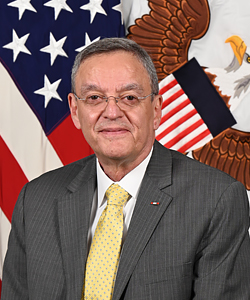 On February 16, 2023, the Senate confirmed Dr. Lester Martinez-Lopez as the Assistant Secretary of Defense for Health Affairs (ASD(HA)). He joined the U.S. Army in 1978 and was sent to Fort Bragg, now Fort Liberty, in North Carolina, where he received his specialty training in family practice and was commissioned a captain upon the completion of his training. He selflessly served in the Army for nearly three decades, retiring in 2005 after 27 years of service.
On February 16, 2023, the Senate confirmed Dr. Lester Martinez-Lopez as the Assistant Secretary of Defense for Health Affairs (ASD(HA)). He joined the U.S. Army in 1978 and was sent to Fort Bragg, now Fort Liberty, in North Carolina, where he received his specialty training in family practice and was commissioned a captain upon the completion of his training. He selflessly served in the Army for nearly three decades, retiring in 2005 after 27 years of service.
Dr. Martinez-Lopez is now tackling many of the concerns that families, retirees, and WWP have raised related to access to care and staffing shortages across the Military Health System (MHS). He is also addressing issues that were highlighted by a November 2023 Department of Defense (DoD) Office of Inspector General (OIG) report.
A variety of factors have contributed to the current challenges to the MHS, and WWP welcomes Dr. Martinez-Lopez’s attention to ensuring the system is viable for the long term and that beneficiaries always have access to military treatment facilities (MTFs) across the country. This is a key priority for WWP, since over 50% of WWP warriors use DoD MHS.
An important aspect of Dr. Martinez-Lopez’s plan is to reverse the department’s previous strategy of outsourcing many health care services, increase capacity at MTFs, and improve the overall veteran experience. The department’s ultimate goal is to reattract patients back to the DoD direct care system.
WWP was pleased to be able to interview Dr. Martinez and hear directly about his background and priorities in his important role at the DoD. To learn more about the Military Health System Strategy, we encourage you to read DoD’s Military Health System Strategic Plan for 2024 – 2029.
Q&A:
WWP: You retired from the U.S. Army as a major general in 2005 after having achieved multiple major accomplishments while in service, such as being the first Latino to head the Army Medical Research and Materiel Command. After a full career in the military and a successful post-service career as the chief medical officer at the Brandon Regional Hospital in Florida and the senior vice president and administrator of the Lyndon B. Johnson General Hospital in Texas, what motivated you to come back to serve as the ASD(HA)?
Dr. Martinez-Lopez: I was happily retired in Tampa, enjoying my grandchildren, when the call came. I was honored to be asked to take on this role, and anyone who has served knows that when the Commander in Chief asks you to serve your country, you have to consider it seriously. But more than that, I saw this as an opportunity to apply my three decades of experience in military medicine to help set policy for a critical requirement for the defense of the United States: readiness. We are in a very challenging period for health care in general, and military health care in particular, and it’s a privilege to be part of meeting those challenges.
WWP: For those who don’t know what the ASD(HA) does, can you tell us what your role is within DoD MHS?
Dr. Martinez-Lopez: The ASD(HA) is the principal advisor to the Secretary of Defense and the Under Secretary of Defense for Personnel and Readiness (USD P&R) for all DoD health and force health protection policies, programs, activities, and the Integrated Disability Evaluation System. In carrying out these responsibilities, the ASD(HA) exercises authority, direction, and control through the Defense Health Agency over DoD medical and dental personnel authorizations and policy, facilities, programs, funding, and other consolidated resources. It is like being the Secretary of Health for DoD.
WWP: How does being a veteran, a provider, and a beneficiary who uses TRICARE, influence your approach to directing the MHS strategy?
Dr. Martinez-Lopez: Each of those roles gives me valuable insight into the needs of our beneficiaries and our providers. Over the past year, I have visited many MTFs, research centers, and partner locations, and I think my past experiences helped me be a better listener. I know what the providers are talking about when they tell me they want to spend their time taking care of patients. I know what Service Members mean when they talk about wanting to know that their families are well cared for. I know what retirees are going through in getting access to care. I take all this into consideration as we evaluate the impact of policy choices so that I can make fully informed recommendations to the Secretary of Defense.
WWP: You recently released the 2024-2029 MHS strategy, and one of the goals is to stabilize the MHS. Can you talk about the role beneficiaries play in helping the system stabilize and how using MTFs impacts readiness?
Dr. Martinez-Lopez: One of the keys to stabilizing the MHS is to reattract beneficiaries to MTFs. Too many patients have been sent out to the private network, and we need to reverse that trend. It’s a readiness issue. Our providers want and need to see patients on a regular basis — it’s the only way to maintain clinical readiness and keep skills fresh. We are working on processes to do this, starting with specialty areas in which we have available capacity. This situation was years in the making, and it will take some time for us to rectify, but we are making progress.
WWP: You spent 27 years serving our country. What was your most memorable experience while in service?
Dr. Martinez-Lopez: I have had so many memorable experiences while in uniform that it is difficult to pick only one. But if I had to choose, I would say it was my first overseas assignment as a young Army doctor. I was deployed to the Sinai as part of a multinational United Nations force following the Camp David Agreement. I saw firsthand the power of international cooperation as well as the medical needs that exist around the world. Until that deployment, I wasn’t sure how long I would stay in the Army, but that experience brought home the kind of impact I could make as part of the military medical force and influenced my decision to make military medicine my career and continue to serve.
About DoD’s TRICARE Program
TRICARE is the health care program for uniformed Service Members, retirees, and their families that is managed by the Defense Health Agency under the leadership of the ASD(HA).
The TRICARE Open Season is an annual period when veterans can enroll in, change, or disenroll from a TRICARE health plan. Each year, it runs from the Monday of the second full week in November through the Monday of the second full week in December. Changes made during the TRICARE Open Season go into effect on January 1 of the following year. You can learn more about TRICARE here, including eligibility.


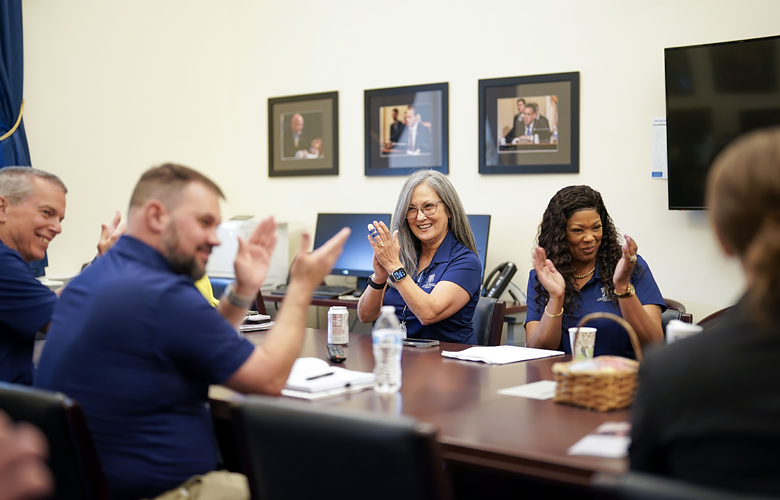
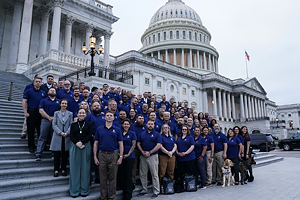 Working in Washington, DC, I periodically get the opportunity to go for a jog around the National Mall. I often stop at one of my favorite monuments, the Korean War Memorial. The image of soldiers patrolling in Korea wearing their ponchos reminds me of my time in service.
Working in Washington, DC, I periodically get the opportunity to go for a jog around the National Mall. I often stop at one of my favorite monuments, the Korean War Memorial. The image of soldiers patrolling in Korea wearing their ponchos reminds me of my time in service.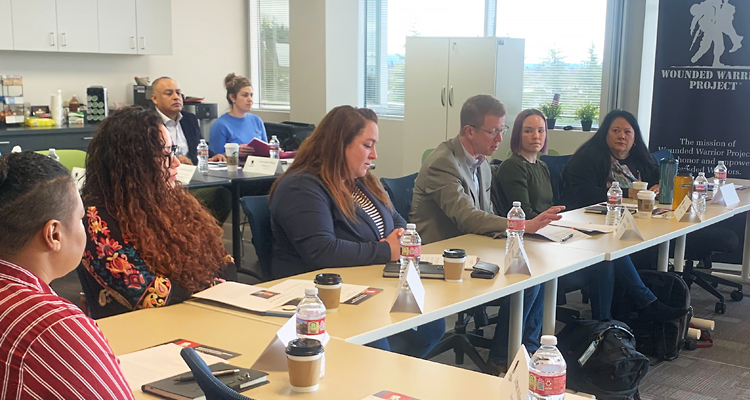
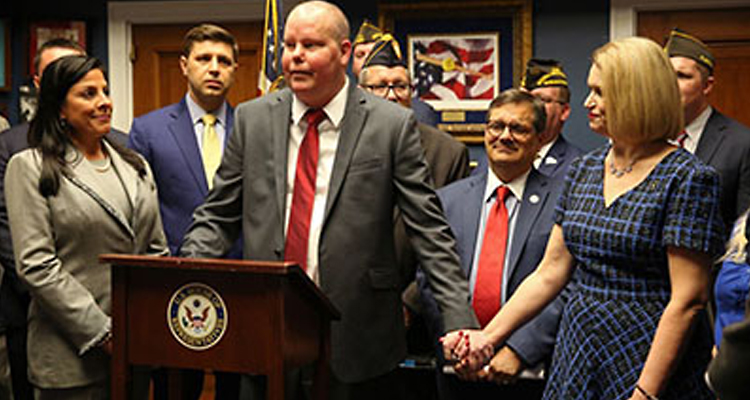
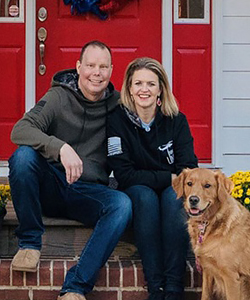 The Major Richard Star Act (S. 344 / H.R.1282) would provide both disability compensation and retirement pay simultaneously for retirees with fewer than 20 years of service and a combat-related disability. Currently, only military retirees with at least 20 years of service and a disability rating of at least 50% can collect both benefits at the same time. For all other retirees, current law requires a dollar-for-dollar offset of these two benefits, meaning they must forfeit a portion of the benefits they earned in service.
The Major Richard Star Act (S. 344 / H.R.1282) would provide both disability compensation and retirement pay simultaneously for retirees with fewer than 20 years of service and a combat-related disability. Currently, only military retirees with at least 20 years of service and a disability rating of at least 50% can collect both benefits at the same time. For all other retirees, current law requires a dollar-for-dollar offset of these two benefits, meaning they must forfeit a portion of the benefits they earned in service. On February 16, 2023, the Senate confirmed Dr. Lester Martinez-Lopez as the Assistant Secretary of Defense for Health Affairs (ASD(HA)). He joined the U.S. Army in 1978 and was sent to Fort Bragg, now Fort Liberty, in North Carolina, where he received his specialty training in family practice and was commissioned a captain upon the completion of his training. He selflessly served in the Army for nearly three decades, retiring in 2005 after 27 years of service.
On February 16, 2023, the Senate confirmed Dr. Lester Martinez-Lopez as the Assistant Secretary of Defense for Health Affairs (ASD(HA)). He joined the U.S. Army in 1978 and was sent to Fort Bragg, now Fort Liberty, in North Carolina, where he received his specialty training in family practice and was commissioned a captain upon the completion of his training. He selflessly served in the Army for nearly three decades, retiring in 2005 after 27 years of service.
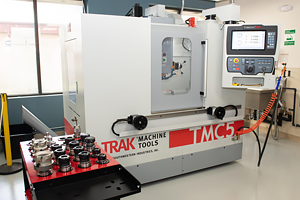 VA’s teams in Richmond have focused on assistive technology for more than a decade. This small, dedicated team of rehabilitation engineers, led by an occupational therapist, has produced 3D-printed solutions for veterans to increase their quality of life and independence. For veterans who are paralyzed or have limited mobility, these improvements can have a substantial impact on their day-to-day lives.
VA’s teams in Richmond have focused on assistive technology for more than a decade. This small, dedicated team of rehabilitation engineers, led by an occupational therapist, has produced 3D-printed solutions for veterans to increase their quality of life and independence. For veterans who are paralyzed or have limited mobility, these improvements can have a substantial impact on their day-to-day lives.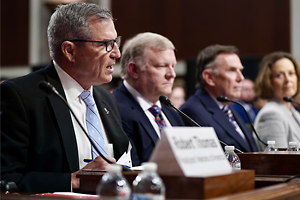 In early March, 75 WWP warriors from across the country traveled to Washington, DC, as part of Operation Advocacy, WWP’s grassroots advocacy program that connects warriors with elected officials and provides them a voice in our nation's capital.
In early March, 75 WWP warriors from across the country traveled to Washington, DC, as part of Operation Advocacy, WWP’s grassroots advocacy program that connects warriors with elected officials and provides them a voice in our nation's capital.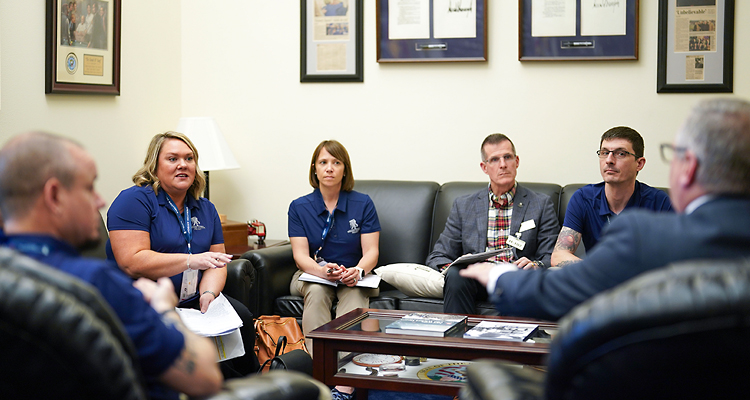
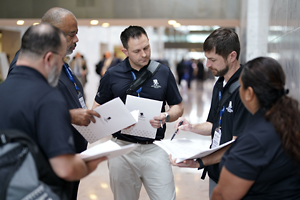 WWP's work advocating for legislation like the Major Richard Star Act wouldn’t be possible without the hard work and dedication of WWP warriors. Their stories and experiences help shed light on the challenges veterans and Service Members face and underscore the critical need for legislation in these areas.
WWP's work advocating for legislation like the Major Richard Star Act wouldn’t be possible without the hard work and dedication of WWP warriors. Their stories and experiences help shed light on the challenges veterans and Service Members face and underscore the critical need for legislation in these areas.